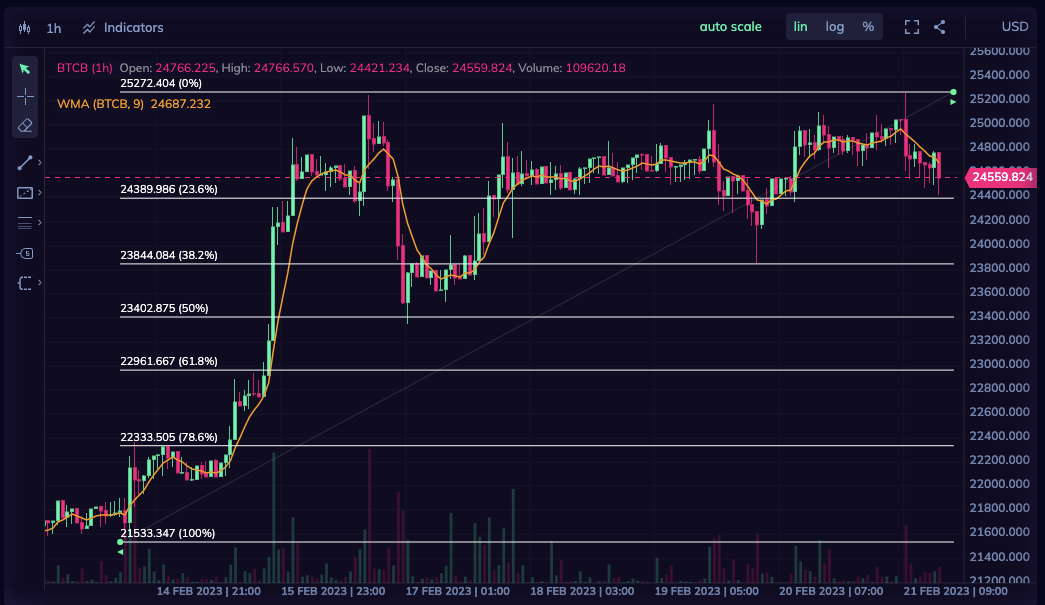How Decentralized Exchanges Work
Decentralized exchanges are platforms that facilitate peer-to-peer trading of cryptocurrencies without the need for intermediaries like banks or centralized exchanges.

Decentralized exchanges (DEXs) have gained popularity in the world of cryptocurrency as a more secure and transparent alternative to traditional centralized exchanges. As the name suggests, DEXs operate without a central authority, allowing users to trade digital assets directly with one another. This article will explore how decentralized exchanges work, the key components that make them unique, and the benefits they offer to users.
Decentralized Exchanges: An Overview
Decentralized exchanges are platforms that facilitate peer-to-peer trading of cryptocurrencies without the need for intermediaries like banks or centralized exchanges. DEXs use blockchain technology to record transactions and ensure the security of trades. Users maintain control over their private keys and funds, reducing the risk of hacks or theft that often plague centralized exchanges.
Key Components of Decentralized Exchanges
- Blockchain Technology: DEXs use blockchain technology to provide a transparent and secure trading environment. All transactions are recorded on a public ledger, ensuring that users can verify the authenticity of trades and maintain trust in the system.
- Smart Contracts: Smart contracts are self-executing agreements with the terms of the contract directly written into code. DEXs leverage smart contracts to automate the trading process, enabling users to execute trades without the need for a central authority.
- Liquidity Pools: In contrast to centralized exchanges, which use order books to match buyers and sellers, decentralized exchanges often rely on liquidity pools. Liquidity pools are pools of tokens that users can deposit into to facilitate trading. By providing liquidity to a pool, users can earn a portion of the trading fees generated by the platform.
- Automated Market Makers (AMMs): AMMs are algorithms used by DEXs to determine the price of tokens in a liquidity pool. They help maintain a constant product of the tokens in the pool, enabling users to trade without the need for a counterparty. This innovative mechanism has made it possible for DEXs to offer seamless trading experiences, even with relatively low trading volumes.
How Decentralized Exchanges Work
- User Onboarding: To start trading on a decentralized exchange, users typically need to connect their cryptocurrency wallet to the platform. Popular wallets compatible with DEXs include MetaMask, Trust Wallet, and Ledger. This step ensures that users maintain control over their private keys and funds throughout the trading process.
- Trading Process: Once connected to the DEX, users can initiate trades by selecting the desired trading pair and specifying the amount they wish to trade. The decentralized exchange then uses the AMM algorithm to determine the current price and executes the trade through a smart contract.
- Fees and Incentives: Decentralized exchanges charge trading fees to cover the costs of maintaining the platform and to incentivize liquidity providers. Users who contribute to liquidity pools can earn a portion of these fees as a reward for facilitating trades.
- Settlement: After a trade has been executed, the smart contract updates the user's wallet balance and the blockchain to reflect the new holdings. The entire process is transparent and secure, with the transaction details recorded on the public ledger.
Benefits of Decentralized Exchanges
- Security: Decentralized exchanges reduce the risk of hacks and theft, as users retain control over their private keys and funds throughout the trading process.
- Privacy: DEXs often do not require users to undergo extensive Know Your Customer (KYC) or Anti-Money Laundering (AML) checks, preserving user privacy.
- Censorship Resistance: Decentralized exchanges operate without a central authority, making it difficult for governments or other organizations to control or shut down the platform.
- Open Access: DEXs provide open access to users worldwide, enabling them to trade digital assets without the need for a bank account or approval from a centralized entity.
- Lower Counterparty Risk: By facilitating peer-to-peer trades without intermediaries, DEXs significantly reduce counterparty risk, as users do not need to trust a centralized entity to manage their funds.
- Token Availability: Decentralized exchanges often support a wider range of tokens, including those that may not be listed on centralized platforms. This offers users more opportunities to invest in new and innovative projects.
Challenges and Limitations
Despite their benefits, decentralized exchanges also face certain challenges and limitations:
- Lower Trading Volumes and Liquidity: DEXs generally have lower trading volumes compared to centralized exchanges, which can lead to higher price slippage and less efficient price discovery.
- User Experience: The user experience on decentralized exchanges can be more complex and less user-friendly, particularly for those new to the world of cryptocurrency.
- Speed and Scalability: Decentralized exchanges can face challenges in terms of speed and scalability, particularly on congested networks, which can result in slower transaction times and higher fees.
Conclusion
Decentralized exchanges have emerged as a viable alternative to traditional centralized exchanges, offering users increased security, privacy, and control over their digital assets. By leveraging blockchain technology, smart contracts, and innovative trading mechanisms like AMMs, DEXs have created a transparent and secure trading environment that is resistant to censorship and fraud. As the cryptocurrency ecosystem continues to evolve, it is likely that decentralized exchanges will play a crucial role in shaping the future of digital asset trading. However, addressing the challenges and limitations that DEXs currently face will be crucial for their long-term success and adoption.
Dexer.io makes it a breeze to watch the prices and liquidity pool values for your favorite tokens. This easy-to-use platform offers a simple way to keep tabs on and evaluate how your chosen tokens are doing in the broader market scene.




